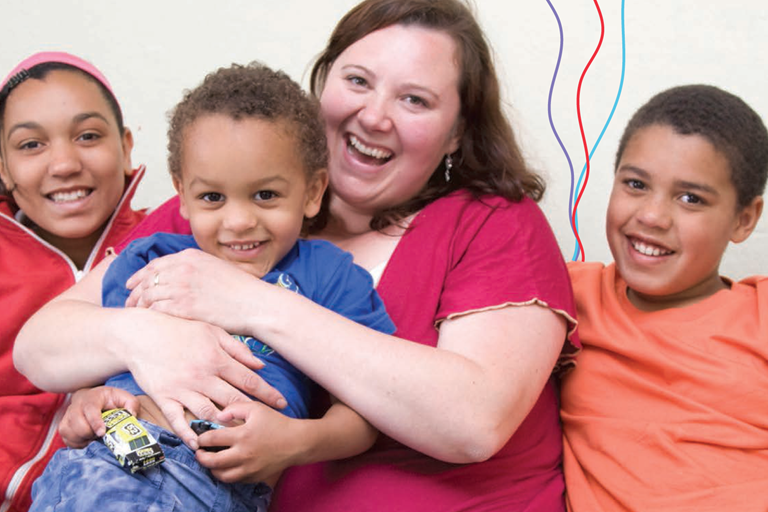10th anniversary lecture
How can services support families in a humane way and build relationships to enable them to flourish, given the impact of inequality and poverty on families.
At the recent PAS 10th anniversary lecture, Brid Featherstone, professor of social work at the Open University, eloquently outlined the evidence on inequality and the beliefs that allow it to persist. She described the consequences for mothers and fathers and looked critically at parenting support. You can read her presentation here.
PAS manager, Clare Simpson, repeated the message when launching the PAS 10th anniversary report at the Scottish Parliament on December commenting, 'for many parents life isn't easy and isn't fair'.
Too many parents are not getting a fair chance. Parents are still being blamed for problems which are not theirs to solve. For many families today the biggest obstacle in their way is not poor parenting skills but being poor. Worrying about putting food on the table or paying the gas bill, or whether they will be 'sanctioned' and lose all income for the family for four weeks will affect the ability to parent. In those circumstances, who on earth would be able to honestly say that they could be the best parent to their children?
In one of the richest countries in the world, it is a disgrace that families should be forced to turn to food banks. We should not be celebrating the fact that more are being set up, or people's generosity in donating stocks to them. We need to alleviate the circumstances which make them necessary in the first place and consign them to history where they belong.
People say it takes a village to raise a child. This should not be a village where there are such vast gulfs between people that some have a much better chance of doing well in life than others; where we know that some children will not do as well educationally as their friends from a different postcode. It should not be one where people's basic needs are unmet. Or where there is not enough housing to go round or where some families cannot put food on the table for their children, or keep their houses warm.
We need to create a village where families have an equal chance, and people have enough to meet their needs. It needs to be a compassionate village. This means tackling the increasing and persistent structural and societal problems which engender inequality.
When we individualise problems of parenting we lose sight of the significant issues which parents are coping with, such as poor housing and not enough money. Unless we tackle these, and ensure that families' basic needs are being met, offering parenting programmes and telling people how to parent is not even a sticking plaster, it is an insult. Parenting programmes have their place, but families need to be in a place where they can benefit from them.
Hard working families - because let's face it, it is hard work being a parent when you are poor - are doing a good job. Parents want to do the best for their children. Let's make sure that it's not such a hard job for so many of Scotland's parents.
As we say in our 10th anniversary report, the main problem people living in poverty have is not having enough money. This has to be a priority for all of those working with families over the next ten years. While it is hard to predict what the next ten years will bring, we do know that PAS will continue to listen to families, and we will go on telling policymakers and politicians what parents are telling us. This is because we want all families to thrive.

